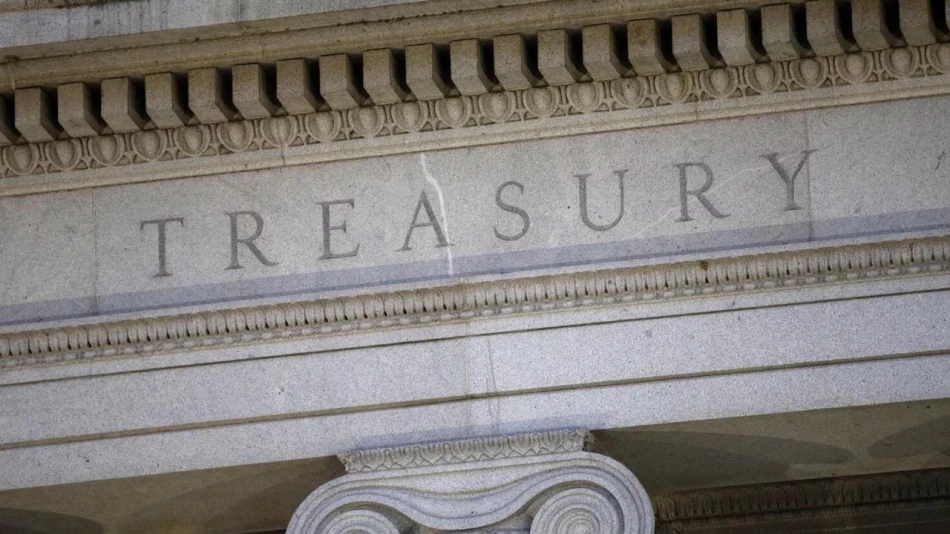
US Treasury: Sanctions on Syria to be Lifted Tomorrow, Impacting Middle East Dynamics
Trump Administration Lifts Syria Sanctions as New Leadership Shows Promise
The U.S. Treasury Department announced Monday the formal removal of Syria sanctions regulations from the Federal Code, effective Tuesday, marking a dramatic shift in American policy toward Damascus. The decision comes as President Donald Trump acknowledges "changed circumstances" under Syria's new government led by President Ahmed al-Sharaa, signaling potential economic opportunities in a region that has been largely isolated from global markets for over a decade.
A Strategic Pivot After Years of Economic Isolation
The sanctions relief represents one of the most significant geopolitical developments in the Middle East since Syria's civil war began in 2011. For more than 13 years, comprehensive U.S. sanctions under the Caesar Act and other measures effectively cut Syria off from international banking, trade, and investment—devastating an economy that once boasted GDP of over $60 billion.
The Treasury Department emphasized that while broad economic sanctions are being lifted, targeted measures remain in place against individuals and entities linked to human rights violations, chemical weapons use, and terrorist organizations. This selective approach mirrors strategies used successfully in other post-conflict transitions, including Myanmar's brief democratic opening and parts of the Iran nuclear deal framework.
What This Means for Markets and Investors
Immediate Opportunities in Reconstruction
Syria's reconstruction needs are estimated at over $400 billion, creating potential opportunities in infrastructure, energy, telecommunications, and housing. International construction giants, energy companies, and logistics firms are likely already assessing entry strategies, particularly given Syria's strategic location linking Europe, Asia, and the Gulf.
The lifting of banking sanctions is particularly crucial, as it enables Syrian institutions to reconnect with the global financial system through SWIFT networks and correspondent banking relationships—essential infrastructure for any meaningful economic recovery.
Regional Economic Integration
This move positions Syria to potentially rejoin regional economic frameworks it was excluded from during the conflict. The country's pre-war role as a transit hub for energy pipelines and trade routes between Turkey, Iraq, and the Gulf states could be revitalized, especially as regional powers seek alternatives to Iranian influence in the Levant.
Comparisons to Other Sanctions Relief Programs
The Syria decision follows patterns seen in other major sanctions relief efforts, but with key differences. Unlike the gradual, conditional approach taken with Iran during nuclear negotiations, or the targeted sector-by-sector relief provided to Myanmar, the Syria announcement appears more comprehensive and immediate.
This rapid pivot resembles more closely the swift policy changes seen when the UAE and other Gulf states normalized relations with Israel in 2020—demonstrating how quickly geopolitical realities can shift economic opportunities in the Middle East.
Risks and Challenges Ahead
Despite the sanctions relief, significant obstacles remain. Syria's new government must demonstrate sustained commitment to governance reforms, human rights protections, and counter-terrorism cooperation. The retention of targeted sanctions on specific individuals and entities creates a complex compliance environment that will require careful navigation by international businesses.
Additionally, the country's devastated infrastructure, depleted human capital from years of emigration, and ongoing security challenges in some regions will likely deter all but the most risk-tolerant investors initially.
Broader Implications for U.S. Middle East Policy
The Syria sanctions relief signals a broader recalibration of American engagement in the Middle East under the Trump administration. By moving quickly to support Syria's new leadership, Washington appears to be prioritizing stability and economic integration over prolonged punitive measures—a approach that could influence future policy toward other regional challenges.
This pragmatic shift may encourage other international partners, including European allies who have maintained their own Syria sanctions regimes, to reassess their positions. The economic benefits of early engagement in Syria's reconstruction could create competitive pressures among global powers seeking influence in the post-conflict landscape.
Most Viewed News

 Sara Khaled
Sara Khaled






